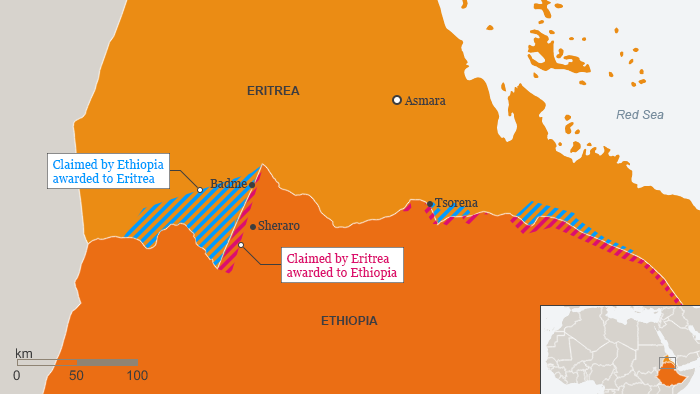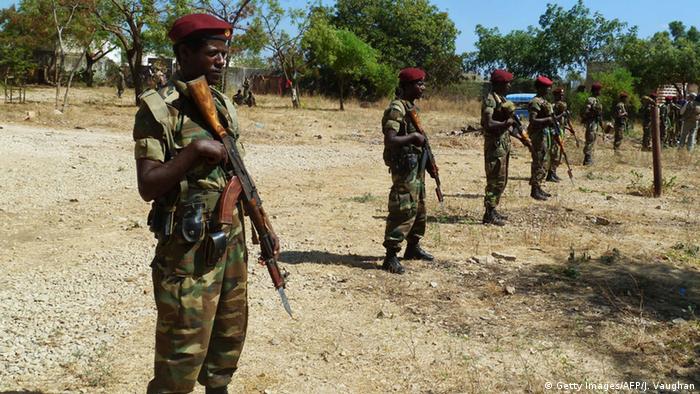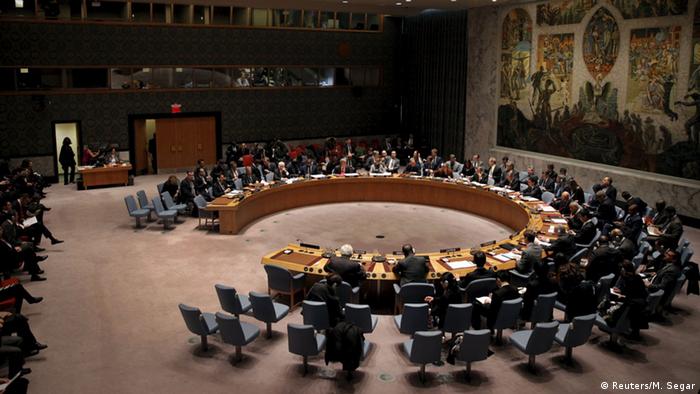Ethiopia is to be a non-permanent member of the UN Security Council for two years. The country may spread peace while on blue helmet missions abroad, but critics complain that political space at home is contracting.
The vote at the UN General Assembly electing Ethiopia as a non-permanent member of the UN Security Council turned out to be largely a formality because Ethiopia ran unopposed in its regional grouping. Africa heads of state and government had agreed on Ethiopia as a joint candidate at their summit in January, when Kenya and the Seychelles withdrew from the contest.
Ethiopia may have run unopposed but it still had to pick up two thirds of the votes cast in the 193-nation assembly. It was backed by numerous African states, including Rwanda whose candidacy Ehtiopia backed in 2013/2014, and by Brazil. Brazilian Foreign Minister Mauro Viera said Ethiopia "with its extensive experience in regional, African and global peacekeeping missions" could make "an immense contribution" to the UN Security Council.
Regional gendarme
Ethiopia's participation and experience in peacekeeping in Africa was a trump card in its bid for a non-permanent seat on the Security Council. Its contingent of 8,000 troops - men and women - on peacekeeping duties is the largest in the world. (The official promotional literature says Ethiopia has the biggest number of female peacekeepers worldwide.)
As a founding member and host country of the Organization of African Unity (OAU), the precursor of the African Union (AU), Ethiopia is a major pillar in the continent's peace and security architecture. Africa's second most populous state also chairs the Intergovernmental Authority on Development (IGAD), mediating in conflicts on the Horn of Africa, most recently during the strenuous negotiations between the warring parties in South Sudan.

Ethiopia has been criticized for ignoring the Ethiopia Eritrea Boundary Commission ruling that defines their common border
Ethiopia and Liberia signed the UN Charter as founding members in 1945. Ethiopia has represented Africa at the Security Council twice in the past, the last time in 1989/90. It contributed troops to the UN in Korea in the 1950s and 60s (when 121 Ethiopian soldiers lost their lives over three years) and in the Congo. Ethiopia pursed its candidacy for 2017/18 with some vigor, it would have been disappointed if it had ended in failure.
Crackdown on dissent
Critics of Ethiopia says its participation in blue helmet missions in Liberia, Burundi, Somalia, Sudan, South Sudan and other conflict zones is considerably more successful than its efforts to create democracy and stability at home. The country, with a population of some 90 million, is run by an authoritarian regime. Journalists, human rights campaigners and opposition activists complain that the political space is contracting and that anti-terror legislation is being used to crack down on dissent.
The Ethiopian foreign ministry says it wishes to use its non-permanent seat on the Security Council to "promote peace and security through dialogue and peaceful conflict resolution." This prompts the question why Ethiopia has been so belligerent in its recent border clashes and verbal exchanges with its neighbor Eritrea.
In the promotional literature for its candidacy, Ethiopia said it "wanted to expand the role of regional security deals." So why then does Ethiopia ignore the ruling of the Boundary Commission defining its border with Eritrea?
Chatting with DW on Facebook on Tuesday, a number of Ethiopians spoke of the changes they hoped the Security Council seat would bring. "Perhaps there will be change within the country," said Kibrom Tadesse. Nesta Worku is more pessismistic. "Which African country protects human rights or democracy? The UN Security Council can't do anything about the African heads of state - they repress human rights."

Ethiopian troops standing guard before a display of weapons left behind by al Shabab militants in Somalia
In his historic speech to the UN General Assembly in 1963, Ethiopian Emperor Haile Selassie said that "the Charter of the United Nations expresses the noblest aspirations of man" only to add that "these, too, are only words; their value depends wholly on our will to observe and honor them and give them content and meaning."
More than 50 years later, Ethiopia is no longer an empire but one of Africa's "lion states." As such, it will be expected to demonstrate that "African solutions for African problems" really is a promise that can be kept, especially in the field of peace and security policy. There is one particular project which Ehtiopia is expected to nudge forward - the African Peace and Security Architecture - the main plank of which is a rapid reaction force based in Addis Ababa.

No comments:
Post a Comment